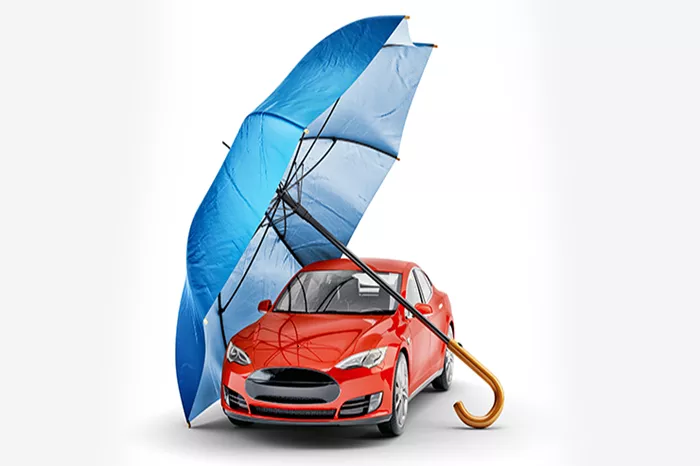Owning an RV opens up a world of adventure and freedom, but it also comes with unique risks. Whether you’re using your RV for weekend getaways, long-term travel, or full-time living, finding the right insurance is crucial to protect your investment and your lifestyle. With so many options available, it can be overwhelming to choose the best RV insurance for your needs. In this article, we’ll explore the top-rated RV insurance providers for 2025, compare their offerings, and help you find the right coverage for your situation.
Why Is RV Insurance So Important?
Before diving into the top-rated insurance providers, it’s important to understand why RV insurance is necessary. While you may already have auto insurance, RV insurance is more comprehensive. RVs are both vehicles and homes, and as such, they have unique risks that need to be addressed.
Standard auto insurance does not cover all the specific needs of an RV. For example, RV insurance typically includes coverage for personal property inside the RV, liability protection, collision coverage, and even emergency roadside assistance. Additionally, full-time RVers need specialized coverage because their RV is their primary residence.
Insurance for RVs protects you in case of accidents, damage, theft, or even natural disasters. It ensures that you are financially secure while enjoying your RV lifestyle, and it helps you manage the risks that come with living and traveling in a motorhome.
What to Look for in the Best RV Insurance
When searching for the top-rated RV insurance, it’s essential to know what to look for. Here are the key factors to consider:
1. Comprehensive Coverage Options
Top-rated RV insurance providers should offer comprehensive coverage options that include:
Collision coverage: Covers damage to your RV from accidents, regardless of fault.
Comprehensive coverage: Protects against theft, vandalism, fire, and other non-collision-related incidents.
Liability coverage: Covers injuries or property damage caused by you in an accident.
Personal property protection: Covers the contents of your RV, such as electronics, furniture, and personal belongings.
Roadside assistance: Provides help if your RV breaks down or you encounter a problem while on the road.
2. Affordable Premiums
While it’s essential to have the right coverage, the cost of insurance is also an important factor. Look for an insurance provider that offers competitive premiums without sacrificing coverage.
3. Customer Service and Claims Process
A top-rated RV insurance provider should offer excellent customer service. This includes easy communication, helpful support, and an efficient claims process. Make sure the provider has a reputation for handling claims quickly and fairly.
4. Flexibility and Customization
Each RV lifestyle is unique, and the best insurance providers understand that. Look for insurers that offer flexible plans and allow you to customize coverage based on your needs. For example, if you’re a full-time RVer, you’ll need different coverage than someone who only uses their RV on weekends.
5. Reputation and Reviews
Check reviews and ratings from customers to see how a particular provider performs in terms of coverage, customer service, and claims handling. The best RV insurance companies have a strong reputation for delivering reliable, high-quality services.
Top-Rated RV Insurance Providers in 2025
Now that we know what to look for in a top-rated RV insurance provider, let’s dive into some of the best options available for 2025.
1. Good Sam Insurance
Good Sam is widely recognized as one of the top providers of RV insurance, particularly for full-time RVers. Their policies are designed with RV living in mind, offering tailored coverage for both motorhomes and travel trailers. Good Sam’s RV insurance includes a variety of protections, including collision, comprehensive coverage, liability, and personal property protection.
Why Choose Good Sam?
Excellent customer service with 24/7 claims support.
Discount programs, including discounts for safe driving and bundling.
Flexible coverage options for full-time RVers, including personal liability protection and full-timer’s coverage.
Pros:
Extensive network of service providers.
Customizable policies based on your needs.
Strong reputation for customer service and claims handling.
Cons:
Can be more expensive than other options for occasional RV users.
2. Progressive RV Insurance
Progressive is another leading name in RV insurance. Known for its affordability and flexible coverage options, Progressive offers a wide range of plans to suit different types of RV owners, from occasional travelers to full-time RVers. Their policies include coverage for your RV, personal property, and liability, and they also provide 24/7 roadside assistance.
Why Choose Progressive?
Easy online quotes and policy management.
Competitive premiums, especially for occasional RVers.
Multiple discounts, including for bundling with other insurance products.
Pros:
Strong financial backing and reputation.
Offers many discounts, including those for experienced RV owners.
Flexible coverage options for full-time and part-time RVers.
Cons:
Some customers report that the claims process can be slow at times.
3. National General Insurance
National General is another top-rated RV insurance provider that offers specialized coverage for full-time RVers, as well as for those who use their RVs occasionally. National General provides a comprehensive range of options, including collision, comprehensive, liability, and personal property coverage. Their policies also include full-timer’s coverage, which is designed for people who live in their RVs year-round.
Why Choose National General?
Offers full-time RV insurance with specialized coverage for long-term travelers.
24/7 roadside assistance and claims support.
Discounts for bundling RV insurance with other types of coverage.
Pros:
Tailored coverage for full-time RVers.
Competitive pricing and discount opportunities.
Strong reputation for customer service and claims handling.
Cons:
Some policies may have higher premiums than others, especially for older RVs.
4. Allstate RV Insurance
Allstate is well-known for its comprehensive insurance products, and their RV insurance is no exception. They offer a wide range of coverage options, including liability, collision, and comprehensive protection. Allstate also provides roadside assistance, personal property protection, and customizable plans for both full-time and part-time RVers.
Why Choose Allstate?
Customizable policies that fit a variety of RV needs.
Easy-to-use app for managing your policy and claims.
Discounts for bundling with other Allstate insurance products.
Pros:
Strong customer service and easy claims process.
Offers a variety of add-ons and options for different lifestyles.
Well-established company with a long track record.
Cons:
May not be as affordable as other providers for occasional RV users.
5. Farmers Insurance
Farmers Insurance offers a variety of RV insurance policies, including coverage for both motorized and towable RVs. Their plans include comprehensive, collision, and liability protection, along with optional coverage for personal property, emergency assistance, and more. Farmers Insurance also provides discounts for safe driving and bundling with other insurance policies.
Why Choose Farmers?
Customizable coverage options for RV owners of all types.
Discounts for bundling RV insurance with auto, home, or life insurance.
Strong reputation for customer service and claims handling.
Pros:
Wide range of coverage options.
Discounts for bundling with other types of insurance.
Excellent customer service.
Cons:
Some users report higher premiums compared to competitors.
Additional Considerations When Choosing RV Insurance
In addition to comparing providers and coverage options, here are some additional factors to consider when choosing RV insurance:
1. RV Type
The type of RV you own will affect your insurance needs. Motorhomes typically require more extensive coverage, while travel trailers may have different requirements. Make sure the insurer offers coverage that suits the type of RV you have.
2. Full-Time vs. Part-Time Use
Full-time RVers need more comprehensive coverage, including protection for their personal belongings and liability. If you’re only using your RV occasionally, you may be able to get by with a more basic policy.
3. State Regulations
Each state has different insurance requirements for RVs. Make sure you’re familiar with the minimum requirements for your state and that your chosen provider meets those standards.
Conclusion
Choosing the best RV insurance is a crucial step in ensuring that you are protected while living or traveling in your RV. The top-rated RV insurance providers in 2025, including Good Sam, Progressive, National General, Allstate, and Farmers, offer comprehensive coverage options that can be tailored to suit your specific needs. By understanding the coverage options available and comparing different providers, you can find an RV insurance plan that fits your budget and lifestyle.
Remember, the best RV insurance is not necessarily the cheapest – it’s the one that provides the coverage you need at a price you can afford.
Related topic:
How Much Is Rv Insurance In Texas














